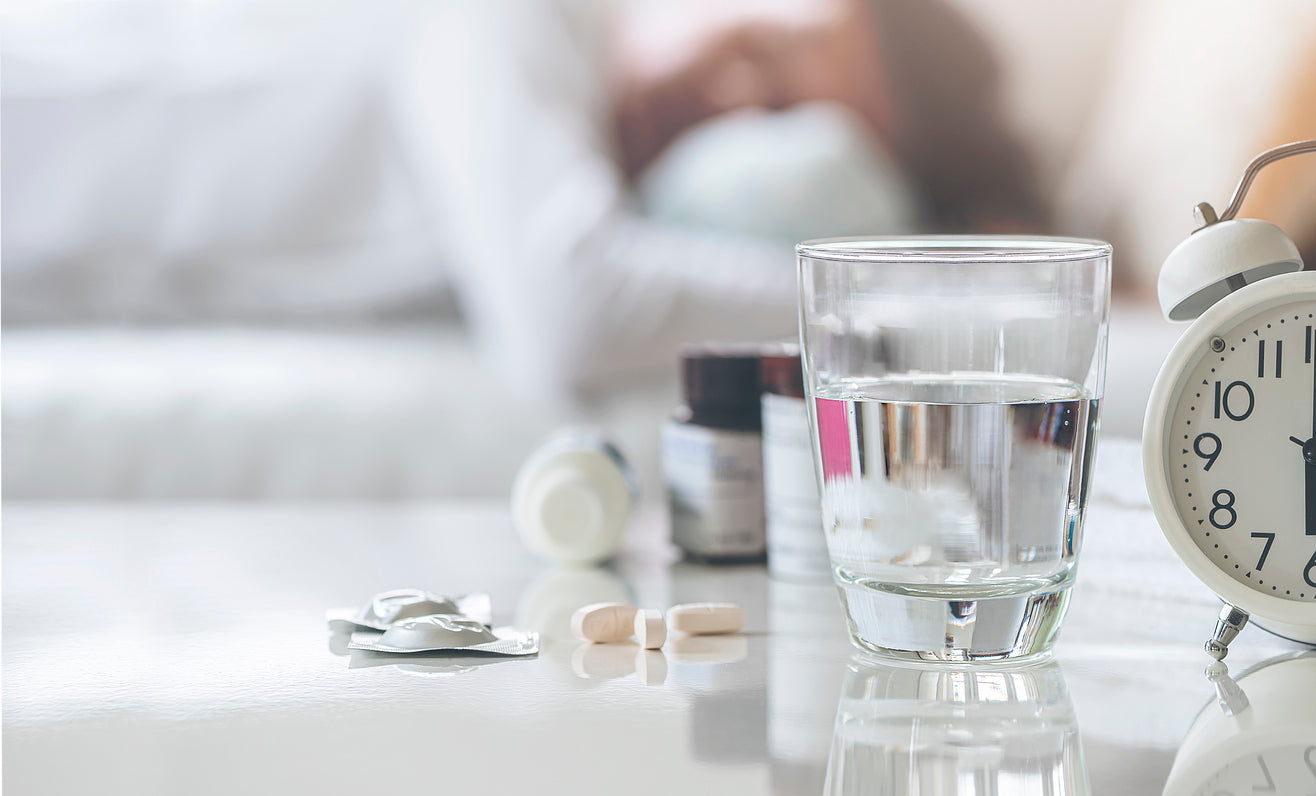Non-Prescription Remedies for Better Sleep

Want to get better sleep and skip the meds that can lead to dependence or side effects? There are many all-natural solutions, like increasing your bright light exposure during the day. Your body has its own internal clock, or circadian rhythm, that informs your hormones, body, and brain to help you stay awake when it's daytime and fall asleep at night. You need natural sunlight or, alternatively, bright light during daytime hours to keep this clock properly ticking. Those with insomnia treated with daytime bright light exposure improved their sleep duration and quality in numerous studies while reducing the time needed to fall asleep by 83 percent.
At the same time, you should minimize blue light exposure in the evenings and definitely in the bedroom. When we’re exposed to light at night—any light—we get the opposite effect of daytime bright light exposure. Blue light comes from electronics, including smartphones. If you can’t completely remove blue lights in the evening and at night, you can wear glasses that block blue light at least two hours before bed. Turn off the TV and look into apps that block blue lights on phones.
What to Drink (and Not)
Avoid caffeine, especially later in the day. Caffeine has some benefits and about 90 percent of US adults consume it. It can help with focus, performance, and energy. However, it also stimulates your nervous system and can keep you from relaxing at night. One study has shown that consuming caffeine even six hours before bed “significantly worsened sleep,” since it can stay elevated in the bloodstream for 6 – 8 hours.
However, drinking Sip2Sleep® is an excellent way to get better sleep. It’s a drinkable, all-natural solution comprised of just two ingredients: tart cherry extract for anti-inflammatory purposes, and Venetron® to minimize stress. You can drink it alongside evening chamomile tea for the added boost of relaxation you need for a good night’s rest.
Nap Right
Napping can be an effective solution for some sleep conditions, such as narcolepsy. However, if you are getting the sleep you need, you should be able to reduce or avoid afternoon naps entirely. Irregular or long naps can interfere with your internal clock, whereas routine short power naps can be very beneficial.
There are many countries where afternoon naps are the norm, but they are short and part of a person’s daily life. The ideal daytime nap is 30 minutes or less to optimize brain function.
Overall, try to sleep and wake at consistent times, even on weekends and days off. The circadian rhythm is on a loop and aligns with sunrise and sunset. When you are consistent with your sleep/wake cycle, you maximize your sleep quality.
Also: How Does My Chronotype Affect My Sleep?
The Ideal Sleep Site
The place where you sleep should be designed to encourage sleep and relaxation. This starts with bedroom temperature. The temperature of both the space and the body can dramatically affect sleep quality. One study has found that bedroom temperature plays a bigger role in sleep quality than even external noise. Around 70 degrees Fahrenheit has been shown to be ideal for most people, although there may be some variance based on circumstances and personal preferences. You will also want to make your sleeping space as dark and calm as possible.
Either no noise or white noise can help you fall asleep faster. Focus on making your bedroom an oasis where sleep is the primary task.
You Are What You Eat
When you eat is just as important as what you eat for sleep health. Studies have shown that eating late at night both negatively affects sleep quality and the body’s natural release of melatonin and HGH. High carb meals eaten four hours before bed have been shown to help people fall asleep faster while another study showed that low carb diets improve sleep. It’s important to find what works for you.
Also: Best Foods for Sleep: What to Eat and Avoid Before Bed
Your sleep hygiene practices also play a role in sleep quality. What is your bedtime routine? Opting for relaxation practices such as meditation or yoga, taking a bath, listening to relaxing music, or doing something “boring” can all cue your brain that it’s time to get ready to sleep. Doing the same rituals nightly can be a great way to wind down and prepare for sleep.
Add Sip2Sleep® to your nighttime routine and take another step on the journey to better, sounder sleep today.







